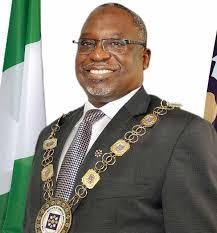
The International Vice President of the Chartered Institute of Logistics and Transport (CILT), Ibrahim A. Jibril, has called for urgent, innovative solutions to Africa’s growing transport challenges while ensuring environmental sustainability.
Ibrahim A. Jibril made this call during his opening remarks at the 2025 Africa Forum and Conference held at the Kigali Convention Centre in Rwanda.
Speaking on Monday, April 28, Jibril, who also serves as Chairman of the Africa Forum, welcomed delegates from across the continent to the two-day event themed “Sustainable Logistics and Green Transport Development for Africa.”
Describing the conference as “groundbreaking,” Jibril underscored the pressing need for African countries to address climate change while meeting the demands of urbanization and economic development. With a blend of humor and insight, he challenged attendees to move beyond outdated and carbon-intensive models, emphasizing that green transport does not mean reverting to traditional methods.
“While camels are energy-efficient and come with built-in tanks,” he quipped, “their cargo capacity is limited. Let’s focus on realistic, innovative, and sustainable solutions.”
Jibril stressed the continent’s increasing demand for efficient logistics systems due to rapid urban growth and expanding trade. However, he emphasized that such development must align with efforts to reduce carbon emissions and safeguard the environment.
“Sustainable logistics and green transport are essential pillars for achieving the United Nations Sustainable Development Goals, particularly SDG 9 on Industry, Innovation, and Infrastructure, and SDG 13 on Climate Action,” he noted.
Highlighting Africa’s potential, Jibril pointed to the continent’s vast renewable energy resources—solar, wind, and hydropower—as key enablers of a green energy revolution. He called for greater collaboration among governments, private sector actors, civil society, and development partners to invest in infrastructure, create supportive policies, and drive inclusive innovation.
“Let’s ensure that rural and underserved communities are not left behind,” he said. “Sustainability must also mean surviving our infrastructure.”
The Forum, which brings together stakeholders from across logistics, transport, and environmental sectors, features discussions on electric mobility, smart logistics, renewable energy in transport, and actionable policies.
Jibril concluded with a powerful reminder staging that “The future of transport in Africa shouldn’t just be about getting from Point A to Point B. It should be about ensuring Point B still exists in 100 years.”















